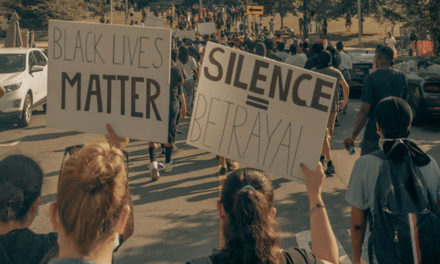It sounds like bad grammar, doesn’t it? Does anyone write about no labels? A label is a simple thing, right? Could be just a small piece of paper made of fabric, plastic, or metal giving information about it. As in, “The calorie count is clearly stated on the menu.” Or it could be slightly more complicated as assigning someone or something to a category, as in, “He’s a loser.” It could be an epithet, like drugstore cowboy. A brand like Xerox can be a verb. It can go with another word, as in designer label. Madame Merriam Webster says it was a 14th Century noun. It’s middle English from the Anglo-French labelle.
A VIN plate on a car labels the car. The FDA provides standards that regulate the information provided on food, wine, or medicine labels. But arguably the most common label is the one we use to distinguish one politician from another. A Democrat, a Republican, a Socialist. And in the interests of differentiating them, we assign political labels such as liberal, moderate, progressive, conservative, or libertarian. The ethics of political labeling are dangerous because one party invariably labels the other as close-minded or un-patriotic, based entirely on their “label,” as opposed to their hopes or beliefs. Very few progressives label conservatives as thoughtful. Even fewer conservatives label liberals as patriotic.
In today’s divisive political world Democrats are often labeled as “radical left-wing socialists.” Republicans are often labeled as “right-wingnuts and white supremacists.” It is the case that these labels are useful because without them all politicians would sound hollow, small-minded, and voting to stay in office rather than advance public service. The single largest risk of political labels is stereotyping the candidate. That defect alone is why one of the most recent efforts at avoiding political stereotyping and gaining political trust is a movement proudly labeled as “No Labels.”
The prompt for this blog is a column written the Sunday Edition of the New York Times by David Brooks.[1] He posits a dreadful possibility for the 2024 election. “What happens if the 2024 election is between Donald Trump and somebody like Bernie Sanders? What happens if the Republicans nominate someone who is morally unacceptable to millions of Americans while the Democrats nominate someone who is ideologically unacceptable? Where do the millions of voters in the middle go? Does Trump end up winning as voters refuse to go that far left?”
One possible answer he offers is a group mysteriously named “No Labels.” It’s mysterious because mainstream America has not yet gotten wind of it, at least not the right or left wings of either mainstream party. The underlying theory, as posed by Mr. Brooks is the possibility of a third viable option in 2024. As he explains it, “The group No Labels has been working quietly over the past 10 months to give Americans a third viable option. The group calls its work an insurance policy. If one of the parties nominates a candidate acceptable to the center of the electorate, then the presidential operation will shut down. But if both parties go to the extremes, then there will be a unity ticket appealing to both Democrats and Republicans to combat this period of polarized dysfunction.”
The staff at No Labels describes the movement’s core beliefs.[2]
1. We believe in an ethic of mutual responsibility, in which both government and citizens owe something to one another. Citizens have a responsibility to contribute to our country in the best way they can, be it to our economy, their families, communities, or civic life. And in return, they have a right to expect the government to be responsible for upholding the law, maintaining public safety, helping care for those who cannot care for themselves, and tackling the problems too large for citizens or private actors to solve alone.
2. We believe in equality of opportunity, in which every American is empowered to get a good education, to pursue their dreams free from bias or discrimination of any kind, and to go as far as their talents and drive can take them– we also believe that government policy should encourage and cultivate these gifts.
3. We believe in Americans’ fundamental right to think, speak, worship, and assemble however they choose. We believe the First Amendment to the U.S. Constitution is first for a reason, because if we ever lose this right, we lose everything.
4. We believe there is no such thing as something for nothing and because of this we believe in the importance of a balanced budget. The growing tendency of both parties to support more tax cuts or government spending with no regard for their impact on future generations will lead to a lower quality of life for our children and grandchildren and make it harder for America to tackle future challenges to our national, economic, and environmental security.
5. We believe Americans being united at home makes us stronger abroad. The Chinese Communist Party, Russia and other totalitarian regimes that threaten American interests benefit from and seek to exploit America’s internal divisions. In previous eras, America’s leaders have embraced the idea that “politics should stop at the water’s edge,” and they must do so once again.
The underlined portions above are ethical imperatives. By that I mean they are strongly felt principles that compel people to act. Categorical imperatives, as defined by Immanuel Kant, are dictates of pure reason. Consequently, not following moral law is self-defeating and contrary to reason.[3]
Madame Wikipedia defines No Labels as a political organization whose mission is to combat partisan dysfunction and build a bipartisan governing coalition.[4] “It works through a problem-solving caucus of fifty-eight members, evenly divided between Republican and Democrats to forge bipartisan cooperation on key issues. Michael Bloomberg and Andrew Tisch are among its founding supporters. Critics of the organization have suggested that No Labels exists primarily to advance the financial interests of the wealthy, pointing in particular to the organization offering large ‘dark money’ campaign donations to members of Congress without disclosing the source of the funds.”
No Labels’ Facebook had 1,331,766 likes as of September 4, 2022.[5]
No Labels co-chair Jon Huntsman said, “The members of this new caucus are heeding the call of millions of Americans who want a new politics of problem solving in our government. It’s a bold move and a challenge to the way business is typically done in Washington. Our country needs more leaders like these willing to rise above the partisanship and get things done.”[6]
“In an opinion piece describing No Labels, co-chairs Huntsman and Joe Lieberman described the Problem Solvers Caucus as “dozens of members of Congress, fostering collaboration and teamwork across party lines. These members of Congress have listened to the message, liked what they heard and are committed to an elevated level of cross-party cooperation.”[7]
Forbes chimed in, saying, “In a nation that feels more divided than ever, Nancy Jacobson wants politicians, leaders, and citizens alike to put labels aside and solve our biggest problems together. As the founder and CEO of No Labels, an organization that fights against the dysfunction and obstruction within today’s politics, she and her team succeed in achieving just that. . . A genuinely bipartisan America might sound like an unreachable dream for many, but [No Labels] believes that it’s possible. . . Still, a shift will rely on politicians, leaders, and everyday citizens insisting on a political transformation. We need to be the change that we expect our leaders to be. How can we expect them to be better and do better if we can’t do it ourselves?”[8]
According to Puck’s Tara Palmeri,[9] the 501(c)(4) No Labels may be pivoting to become more of a political party in 2024. It’s reportedly looking into getting on the ballot in all 50 states, a precursor to running an actual third-party presidential candidate against (presumably) President Joe Biden and whoever comes out of the Republican field. No Labels told Palmeri that “nothing is definite,” but the dark money group didn’t deny it had raised $50 million with an eye on that project.[10]
Open 990 defines No Labels in ground-level terms. “No Labels is a movement of Democrats, Republicans, and everything in between, dedicated to the politics of problem solving. We stand united behind a simple proposition: We want our government to stop fighting and start fixing.”[11]
From an ethical perspective any group that promotes relief from the nays of the Republican Party and the brags by the Democratic Party, has to be better than what we have today. Machiavelli said, “Politics Have No Relation to Morals.” Henry Kissinger came close when he said, “Corrupt politicians make the other ten percent look bad.” But Mark Twain, as he often did, said it best, “Reader, suppose you were an idiot. And suppose you were a member of Congress. But I repeat myself.”
[1] https://www.nytimes.com/2022/09/01/opinion/third-presidential-candidate-2024.html?searchResultPosition=1
[2] https://www.nolabels.org/about
[3] https://en.wikipedia.org/wiki/Moral_imperative
[4] https://en.wikipedia.org/wiki/No_Labels
[5] https://www.facebook.com/NoLabels/
[6] https://ballotpedia.org/No_Labels
[7] https://www.cnn.com/2015/06/17/opinions/huntsman-lieberman-no-labels-national-strategy/
[8] https://www.forbes.com/sites/robdube/2021/02/08/no-labels-allowed-can-the-congressional-problem-solvers-caucus-rebuild-a-bipartisan-united-states/?sh=900372548e5a
[9] https://puck.news/author/tara-palmeri/
[10] https://bluetent.us/blog/no-labels-reportedly-has-a-naive-plan-to-waste-millions/
[11] https://www.open990.org/org/271432208/no-labels/

I am an author and a part-time lawyer with a focus on ethics and professional discipline. I teach creative writing and ethics to law students at Arizona State University. Read my bio.
If you have an important story you want told, you can commission me to write it for you. Learn how.






 I am an author and a part-time lawyer with a focus on ethics and professional discipline. I teach creative writing and ethics to law students at Arizona State University.
I am an author and a part-time lawyer with a focus on ethics and professional discipline. I teach creative writing and ethics to law students at Arizona State University.  My latest novel is Hide & Be.
My latest novel is Hide & Be.  If you have an important story you want told, you can commission me to write it for you.
If you have an important story you want told, you can commission me to write it for you.